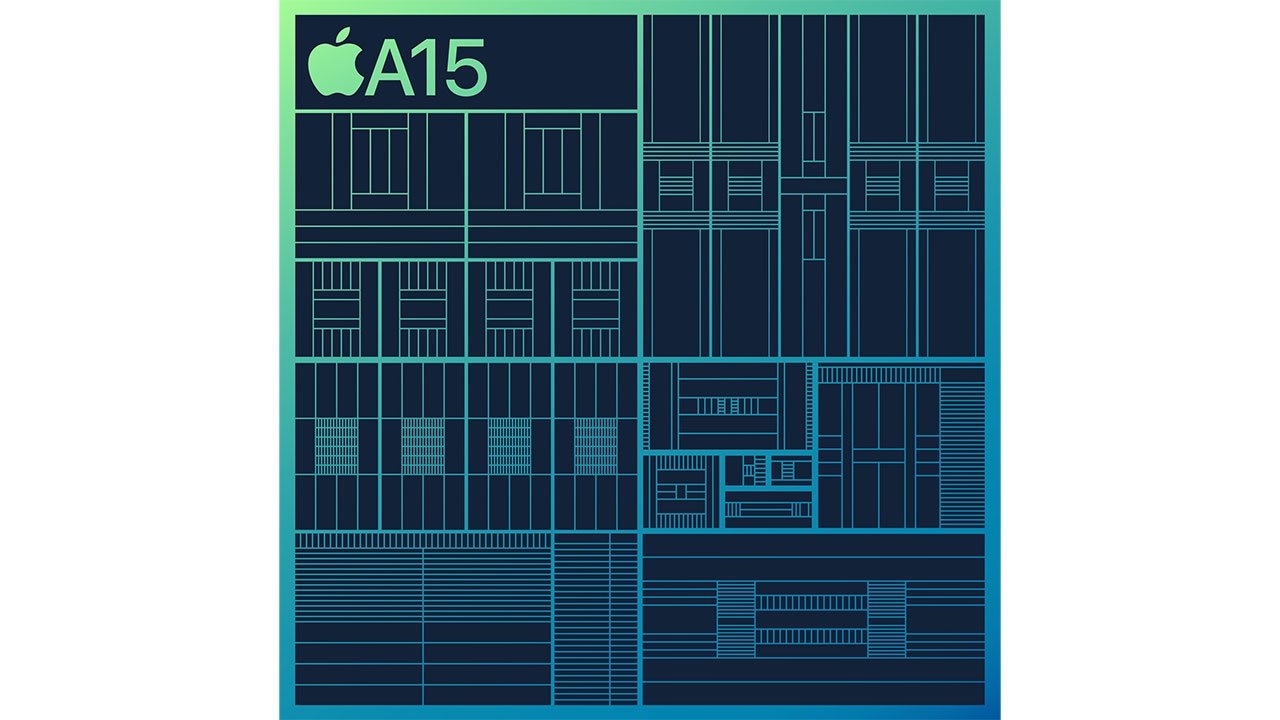iPhone 13 A15 benchmarks reveal 21% CPU speed gain over iPhone 12
More data from Apple's unreleased iPhone 13 lineup has made its way to the Geekbench Browser, offering a sneak peek at the performance users can expect from the next-generation handset and, by extension, the new iPad mini.

According to CPU statistics uploaded by Geekbench users, iPhone 13's average single-core score is 1730, a roughly 10% increase from iPhone 12's score of 1575. Multi-core scores average out to 4621, or nearly 21% higher than the 3832 put in by iPhone 12.
If accurate, the figures represent a decent bump in computing performance for the entire iPhone 13 line. While Apple includes an additional GPU core and more memory in the A15 Bionic deployed in iPhone 13 Pro and iPhone 13 Pro Max models, all iPhone 13 models share a common six-core CPU design with two performance cores and four efficiency cores.
It should be noted that only six devices with designations ranging from "iPhone14,2," "iPhone14,3" and "iPhone14,5" have run the benchmarking suite and uploaded corresponding data as of this writing, and the early information cannot be corroborated as legitimate. That said, the results are consistent and the data sheds light on hardware specifications Apple has yet to detail.
As noted by MacRumors, which spotted the Geekbench results earlier today, the iPhone 13's Metal score of 10608 is much lower than corresponding 14216 score put in by an iPhone 13 Pro, again a result of one less GPU core. Still, the A15 in iPhone 13 and, presumably, iPhone 13 mini puts in a Metal score that is about 15% higher than that of last year's A14 Bionic.
Apple failed to detail A15's CPU performance in its "California Streaming" event on Tuesday, saying only that the chip is 50% faster than the competition. The ambiguity led some to believe that the decision not to include direct comparisons was intentional.
Read on AppleInsider

According to CPU statistics uploaded by Geekbench users, iPhone 13's average single-core score is 1730, a roughly 10% increase from iPhone 12's score of 1575. Multi-core scores average out to 4621, or nearly 21% higher than the 3832 put in by iPhone 12.
If accurate, the figures represent a decent bump in computing performance for the entire iPhone 13 line. While Apple includes an additional GPU core and more memory in the A15 Bionic deployed in iPhone 13 Pro and iPhone 13 Pro Max models, all iPhone 13 models share a common six-core CPU design with two performance cores and four efficiency cores.
It should be noted that only six devices with designations ranging from "iPhone14,2," "iPhone14,3" and "iPhone14,5" have run the benchmarking suite and uploaded corresponding data as of this writing, and the early information cannot be corroborated as legitimate. That said, the results are consistent and the data sheds light on hardware specifications Apple has yet to detail.
As noted by MacRumors, which spotted the Geekbench results earlier today, the iPhone 13's Metal score of 10608 is much lower than corresponding 14216 score put in by an iPhone 13 Pro, again a result of one less GPU core. Still, the A15 in iPhone 13 and, presumably, iPhone 13 mini puts in a Metal score that is about 15% higher than that of last year's A14 Bionic.
Apple failed to detail A15's CPU performance in its "California Streaming" event on Tuesday, saying only that the chip is 50% faster than the competition. The ambiguity led some to believe that the decision not to include direct comparisons was intentional.
Read on AppleInsider

Comments
iPhone 12 Pro Max - iOS 14.71 - Geekbench 5.4.1 - Sept. 15th 2021 (https://browser.geekbench.com/v5/cpu/9853975)
A14 @ 2.99 GHz
Singe Core Score: 1605
Multi Core Score: 4294
iPhone 14,2 - iOS 15 - Geekbench 5.4.1 - Sept. 15th 2021 (https://browser.geekbench.com/v5/cpu/9851461)
A15 @ 3.22 GHz
Singe Core Score: 1728 (+7.6% over A14)
Multi Core Score: 4695 (+9.3% over A14)
"Single Core Score: 1728 (+7.6% over A14)
Multi Core Score: 4695 (+9.3% over A14)"
A14 @ 2.99 GHz
A15 @ 3.22 GHz
= +7.33%
M1 @ 3.2 GHz Single Core: 1721 (iPad Pro https://browser.geekbench.com/v5/cpu/9837998)
+0.4%
M1 @ 3.2 GHz
A15 @ 3.22 GHz
= 0.6%
Conclusion, the difference mainly boils down to an increase in frequency and presumably the bigger cache in multi core score.
Singe Core Score: 1734 (+ 8% over A14)
Multi Core Score: 4818 (+ 12.2% over A14)
I understand the complaint, of course — it’s legit to point out that the A15 is an anemic upgrade over the A14. But it’s still funny that the competition is so far behind that it’s considered a bad sign that apple is reduced to comparing themselves to it.
However worth noting is that there has been significant press stating that the A15 would only be a mild bump, and that Apple has "hit a performance wall" - This is interesting because it's not just wrong, but appears to be a wide effort at astroturfing. It's an especially bold attempt because it infers that apple M-series would be similarly hobbled. (I dare say Apple wouldn't switch to their own silicone without a realistic performance roadmap.)
Would you complain if you "only" received a 10% salary increase every year?
Anyone know differently?
Nobody will be able to activate any unused part of a chip. They are typically fused off. IOW, the circuits to those cores and components are cut at the chip level. If a user gets a perfect chip that had components fused off, at minimum, they would have take it out of the package and solder it in at the metal layers of the chip with micrometer sized tools. That's assuming it's a perfect chip. If it is not, and it is apt to be, the core is either not functional or operates outside qualification requirements, like does not run at the right clocks, uses too much power, delivers the wrong result too often, etc.